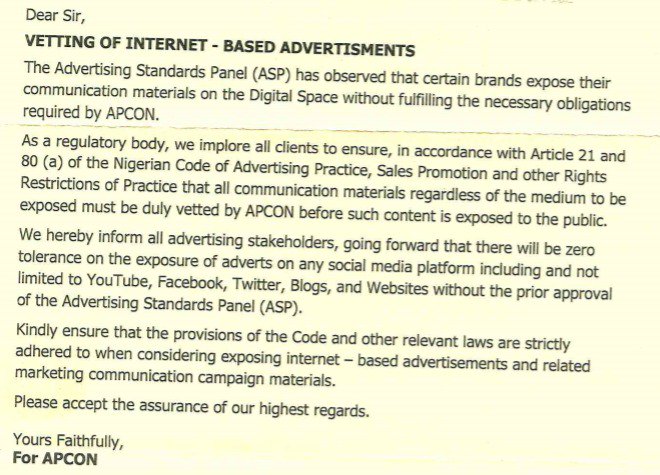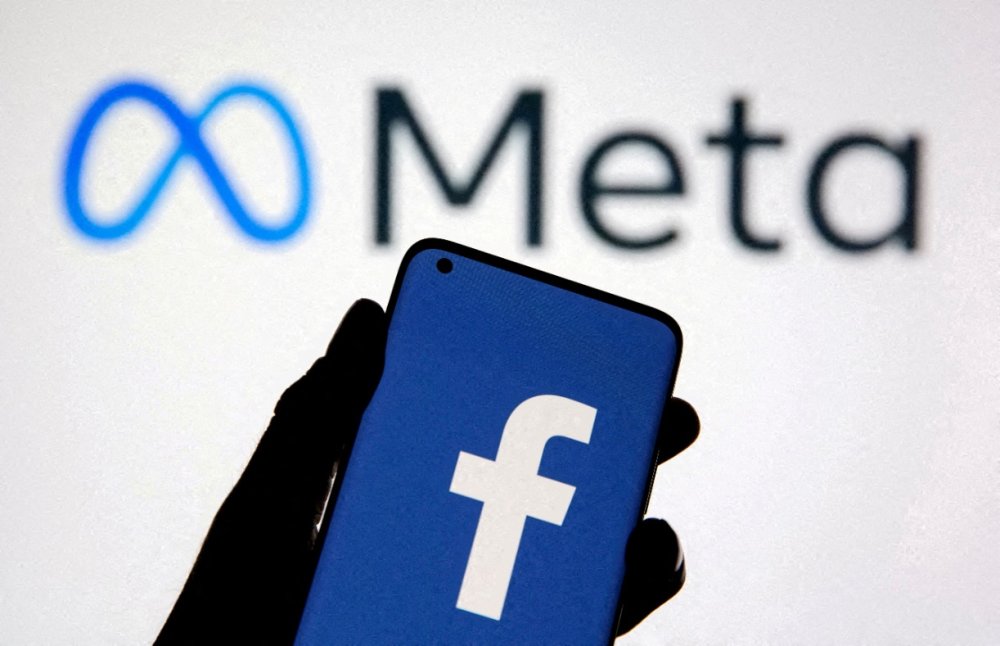Key takeaways
- Nigeria’s advertising regulatory body, the Advertising Regulatory Council of Nigeria(ARCON), has sued Meta for ₦30 billion ($70 million) for illegal and unvetted ads being posted on its platforms. This is the first time a Nigerian regulatory body is suing Meta, and it could also be the first lawsuit of this nature against the company.
- ARCON says it had reached out to Meta previously and received no concrete response and is suing based on the duty conferred on it in its new establishing Act.
- If this suit is decided in ARCON’s favour, advertisers could be made to pay more than they already do. Facebook advertisers currently pay a 7.5% Value Added Tax and could face an additional fee of upwards of ₦25,000 ($57) for vetting charges.
Almost two months ago, when I published news of Nigeria’s advertising regulatory body, the Advertising Regulatory Council of Nigeria (ARCON), banning foreign models and voice-over artists from appearing in Nigerian ads, my headline read something like this:
Nigerian advertisers can no longer use foreign models and voice-over artists, and there’s more to come
The article ended with me hinting at ARCON considering a ban on social media adverts, and last week, the regulatory body made good on its promises.
On Tuesday, October 4, 2022, ARCON announced that it was suing Meta, the parent company of social media platforms Facebook, Instagram, and WhatsApp, to the tune of ₦30 billion ($70 million) for what it termed illegal and unvetted ads being posted on its platforms.
According to ARCON’s statement, it has lodged a suit against Meta Platforms Incorporated and its agent AT3 Resources Limited at the Federal High Court, Abuja Judicial Division.
It also said it is seeking an order to declare that the continued publication of ads directed at the Nigerian market through Facebook and Instagram without vetting and approval before exposure is illegal, unlawful and a violation of the ARCON Act 2022.

Interestingly, no copy of this bill can currently be found online. The ARCON Act repealed the previous APCON Act and enabled the regulatory body to change its name from the Advertising Practitioner’s Council of Nigeria to ARCON. The ARCON Act was passed into law in July 2022 by President Muhammadu Buhari.
The first page of an “ARCON Bill pdf” search query would reveal results like the Architects Act and the Architects Registration Council of Nigeria Act. The same goes for an “ARCON Act pdf” keyword.
The plot thickens a bit when you type in an “APCON bill pdf” query; the first page shows results like two draft APCON amendment bills which mention nothing of a name change.
It thickens further when you go on to the second, third, and fourth pages.
You’ll find articles like this This Day piece from 2021, which reveals a little more about what the bill might contain.
At the public hearing of the ARCON bill organised by the House Committee on Information, National Orientation, Ethics and Values, the Association of Advertising Agencies of Nigeria (AAAN) noted that the inclusion of “Regulatory” and “Practitioners (Registration)” in the name of the proposed council would enable it to regulate any form of advertising in the country.
AAAN also said that it would prevent the courts from ruling — as we saw in the MIC Royal Limited v. APCON case — that APCON only has powers over registered practitioners.
So until we can get a hold of the ARCON Act, we could reasonably assume that ARCON’s actions are a direct result of the amendment of the APCON Act.
What ARCON wants
ARCON wants all ads placed on Meta’s platforms to be subjected to a vetting and approval process before they can be posted.
This would also involve the would-be “advertiser” paying to have it vetted.
In 2019, APCON introduced a ₦25,000 online advertising fee which progressively increased depending on the urgency. There was a huge public outcry, and not much came of it. Now it wants to resurrect this charge.
This is all too familiar, though. Or is it?

Meta is no stranger to lawsuits from governments.
In India, for instance, the government has sued Meta for refusing to remove material insulting Indian leaders and major religious figures. Although in a surprising turn of events, Meta and Twitter sued the Indian government over its new privacy rules in 2021.
In other countries like the US, Australia, and Belgium, Meta has faced lawsuits over data breaches, online privacy, and trademark infringement.
On the advertising front, it has been sued regarding scam advertisements, conspiring to make money off ad sales, its algorithm, wrongful use of a person’s image in an advert, and failing to disclose politically-sponsored content, among other things.
This is possibly the first time that Meta has been sued so that ads on its platform can be vetted. It is also the first time the Nigerian government is suing the company.
ARCON’s Director-General, Olalekan Fadolapo, told PUNCH that it had tried to reach out to Meta requesting a meeting to negotiate, but the company didn’t acknowledge or attend the meeting.
What does all this mean?

According to ARCON, it is not concerned with regulating social media; it is only concerned with advertising and marketing communications on online platforms.
But Timi Olagunju, Tech Lawyer and Policy Consultant, disagrees.
“That argument falls flat on its face because when you’re trying to control, manage, vet advertisement content, you are indirectly getting involved in the murky waters of regulating social media.”
Then there’s also the question of who bears the brunt.
Currently, advertisers on Facebook pay a 7.5% Value Added Tax charge to display their ads; this money goes to the Federal Inland Revenue Service. If the court rules in ARCON’s favour, then there is a high possibility that the cost for vetting would fall on the advertiser and not Meta.
“In the long run, when you start adding VAT fees and vetting fees together, then the practicality of that cost falls on the consumer, the Nigerian people. It’s not done that way. There are similar laws in the UK, for example, but they don’t vet every advert.
“What they simply do is watch; they serve as watchdogs.”
Olagunju advocates self-regulation. Most social media platforms already have advertising standards, policies, and ways of enforcing these ads. Although it could be argued that they do not catch everything, as we saw with this ad of a supposedly 9-year-old girl dying of cancer.
The ad ran on Facebook, YouTube, and Google but turned out to be a scam, with people donating more than $536,000 as of August 2022.
One thing Olagunju, however, believes is that this is only the beginning, and Nigerians should be wary and vigilant.
“So that this ends up being just a game, we have to take this seriously. The price of freedom is eternal vigilance. There are committees in charge of these things. Find them and go to the National Assembly and pressure them.”
To listen to/watch the rest of this conversation, you can watch the video here:
Or find the Techpoint Africa Podcast on all your podcasting platforms, including Google Podcasts, Apple Podcasts, and Spotify,










